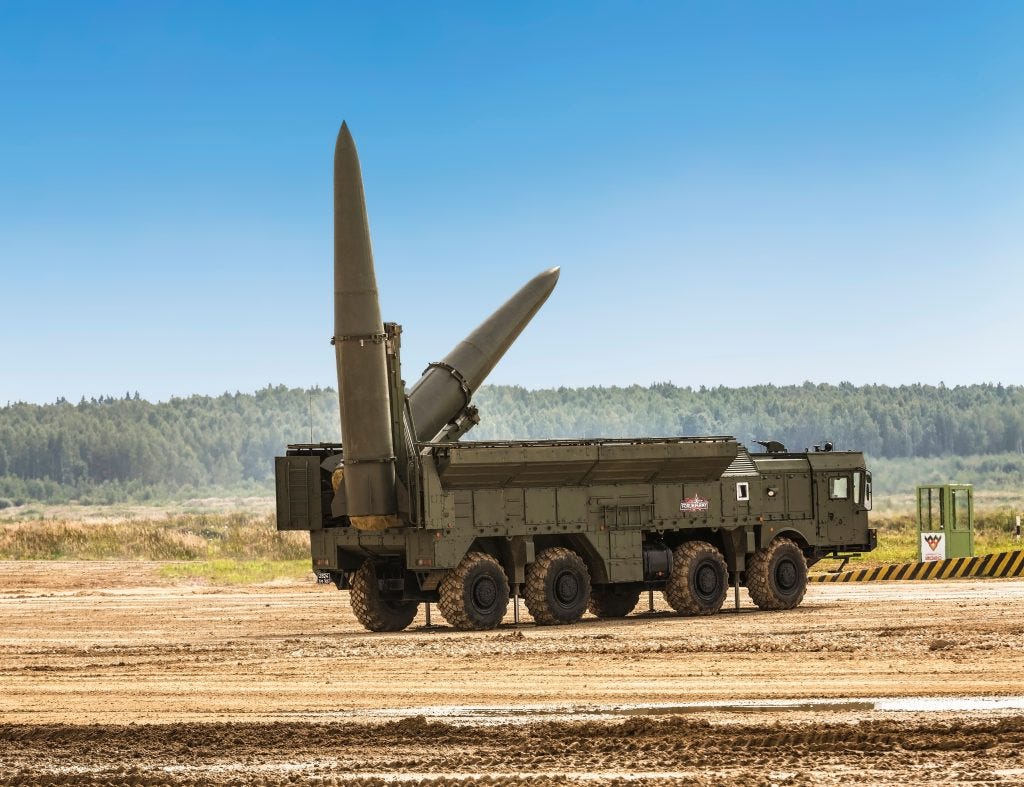Russian nukes in Belarus may be first of many more dangerous deals
Move follows similar nuclear deployments by US to NATO bases
The world took another step closer to nuclear war last weekend when Russian Federation President Vladimir Putin announced he would deploy nuclear weapons in Belarus, a Russian ally that borders Ukraine and three NATO countries.
Although not unexpected, and while Putin said the move would not violate nuclear non-proliferation promises, Reuters described it as one of Russia's most pronounced nuclear signals since the beginning of its invasion of Ukraine 13 months ago.
If Russia actually follows through on the deployment, it will mirror similar nuclear escalation by the United States that already stations nuclear weapons in other European countries. As PeaceQuest readers will recall, the United States rushed the upgrading of its nuclear weapons last December to its bases in Germany, the Netherlands, Belgium, Italy and Turkey.
One of Russia's most pronounced nuclear signals since the beginning of its invasion of Ukraine 13 months ago
REUTERS
The United States has reacted cautiously to Putin's statement, with a senior administration official saying there were no signs Moscow planned to use its nuclear weapons.
Putin announced that the weapons would have tactical nuclear warheads, which have a smaller explosive yield than larger “city-destroying” warheads delivered by intercontinental missiles, but catastrophic nonetheless.
The weapons could be mounted on Iskander mobile short-range ballistic missiles (which replaced the famous SCUD missile). Such weapons armed with nuclear warheads and deployed closer to Ukraine would give Russia the ability to launch a nuclear attack more quickly than using longer-range missiles based in Russia.

Belarus, a former Soviet-bloc state, had nuclear weapons stationed inside its borders during the Cold War, but returned them to Russia after the dissolution of the Soviet Union in 1991, joining Ukraine and Kazakhstan in giving them away.
Disarmament experts are worried that Russia’s so-called nuclear sharing agreement with Belarus could spur even more such nuclear proliferation.
“Russia-Belarus nuclear sharing is an alarming potential development that should be vigorously criticized by NPT [Nuclear Non-Proliferation Treaty] states parties. If implemented, nuclear sharing and deployment of Iskander missiles may cause NATO to revise its policy of not basing nuclear weapons in post-Cold War NATO states, Poland and others. That could mean deepened reliance on and entrenchment of nuclear weapons on the NATO side, and then correspondingly on the Russian side,” said John Burroughs, Senior Analyst of the U.S.-based Lawyers Committee on Nuclear Policy in an email to PeaceQuest.
“In fact, a nuclear sharing arrangement with the United States is now being publicly discussed in Japan based on an early 2021 proposal by the late Shinzo Abe,” he added.
The group is urging strong opposition Russia's move.
"A failure to collectively condemn Russia-Belarus nuclear sharing as incompatible with the NPT could help set the stage for eventual nuclear sharing arrangements elsewhere in the world, notably in the Asia-Pacific region and in the Middle East," said Burroughs.


In 1962, when the Cuban missile crisis occurred, the US had nuclear missiles in Turkey, which borders the then Soviet Union (and now Russia today). As part of the negotiations to end that crisis, the missiles were removed from Turkey for some time but then returned. Cuba does not border the US and there are no Russian missiles in any country that borders the US. Before Putin's move to place missiles in Belarus and before the invasion of Ukraine, there had been an expansion of NATO countries surrounding Russia and since the invasion, even more American nuclear missiles, close to Russia, capable of a decapitation strike on Moscow (seven minutes away). And, by the way, after Cuba's thwarting an invasion attempt in April 1961 at the Bay of Pigs and discovering American plans for a further massive US invasion of their country, they were concerned, to put it mildly.
Numerous coup operations conducted by the American CIA, in their acts to change heads of state to ones favorable to their oil and resources extraction corporations, starting with Iran (August 1953), Guatemala (1954), Chile (1973) and numerous others, created distrust. Anyone who thinks should be able to see that a trillion dollar a year arms industry, aggressive foreign policy and imperial war mentality, that the root of this invasion begins mainly in a push from an expansionist West. (Please remove disinformation).